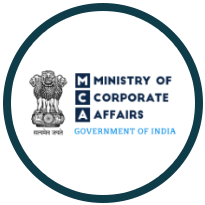A Comprehensive Guide to FSSAI Registration

The Ministry of Health and Family Welfare of the Government of India (GOI) established the Food Safety and Standards Authority of India (FSSAI) as an independent body. Its responsibility is to establish scientific standards for food products and to control their production, storage, distribution, sale, and import to make sure that consumers can access wholesome, safe food.
What is FSSAI?
Food Safety and Standards Authority of India(FSSAI), was established in 2006 under the Food Safety and Standards Act. It is the apex regulatory body for food safety and standards in India. The primary objective of FSSAI is to protect consumers’ health and ensure food products’ safety.
Importance of FSSAI
FSSAI plays a crucial role in ensuring food safety and quality in India. It sets standards for various food products, promotes food hygiene and safety practices, and regulates the food industry to ensure compliance with these standards. FSSAI’s efforts aim to prevent foodborne illnesses and promote a healthy food environment.
FSSAI Registration Process
To operate a food business legally in India, obtaining an FSSAI registration or license is mandatory, depending on the scale and nature of the company. The registration process involves the following steps:
- Determine the category of FSSAI registration based on the business’s turnover and nature.
- Prepare the necessary documents, including identity proof, address proof, and a blueprint of the food processing unit.
- Apply along with the required documents to the FSSAI regional office.
- Pay the applicable registration fees.
- After verification of documents, the FSSAI registration certificate will be issued.
Documents Required
The documents required for FSSAI registration vary based on the category of registration. However, some common documents include the following:
- Identity proof (e.g., PAN card, Aadhaar card, Voter ID, etc.)
- Address proof (e.g., utility bill, rent agreement, etc.)
- Food safety management plan
- NOC from the local municipality or Panchayat
- food products to be manufactured or sold in a list.
FSSAI Registration Categories
FSSAI offers different categories of registration based on the size and nature of the food business. The categories include:
- Basic FSSAI registration: For small-scale food businesses having an annual turnover of up to Rs. 12 lakhs.
- State FSSAI license: For medium-scale food businesses having an annual turnover between Rs. 12 lakhs and Rs. 20 crores.
- Central FSSAI license: Large food businesses with an annual turnover exceeding Rs. 20 crores.
Benefits of FSSAI Registration
Obtaining FSSAI registration provides several benefits to food businesses, such as:
- Legal compliance and avoiding penalties
- Enhanced consumer trust and confidence
- Access to a broader market and opportunities for growth
- Recognition as a safe and quality-conscious brand
- Eligibility to participate in government tenders and contracts
Frequently Asked Questions
Q1. Who needs FSSAI registration?
A: FSSAI registration is compulsory for all food businesses involved in manufacturing, processing, packaging, or distributing food products.
Q2. How long does the FSSAI registration process take?
A: The FSSAI registration process typically takes around 730 days, depending on the registration category and the documents’ completeness.
Q3. Can I operate a food business without FSSAI registration?
A: Operating a food business without FSSAI registration is illegal and may attract penalties and legal consequences.
Q4. Can FSSAI registration be transferred from one person to another?
A: No, FSSAI registration is non-transferable. In case of a change in ownership or location, a new registration is required.
Q5. Is FSSAI registration applicable to home-based food businesses?
A: Yes, even home-based food businesses need to obtain FSSAI registration if they fulfill the eligibility criteria based on turnover.
Q6. What is the validity period of FSSAI registration?
A: FSSAI registration is valid for 15 years, depending on the category of registration chosen.
Q7. Are there any specific requirements for labeling food products under FSSAI registration?
A: Yes, FSSAI has specific guidelines for labeling food products, including mandatory information such as product name, ingredients, nutritional information, and FSSAI license number.
Q8. Can FSSAI registration be done online?
A: Through the Food Licencing and Registration System (FLRS) portal, the FSSAI registration process can be completed online.
Q9. Is it necessary to have a separate FSSAI registration for each food product?
A: No, a single FSSAI registration can cover multiple food products within the same category.
Q10.What are the consequences if a food business operates without FSSAI registration?
A: Operating a food business without FSSAI registration can lead to penalties, closure of the company, and legal consequences, as it violates food safety regulations.
Q11. Do I need FSSAI registration for a temporary food stall or event?
A: Yes, even temporary food stalls or events need to obtain FSSAI registration or license, depending on the scale and duration of the event.
Q12. Is FSSAI registration required for importers of food products?
A: Yes, importers of food products also need to obtain FSSAI registration or license, depending on the nature and scale of their import operations.
Q13. Can FSSAI registration be done without a physical inspection of the premises?
A: In some instances, FSSAI may require a physical inspection of the premises before issuing the registration certificate.
Q14. Is it compulsory to display the FSSAI license number on food packaging?
A: Yes, it is. The FSSAI license number should be displayed on food packaging for easy identification and verification by consumers.
Q15. What is the difference between an FSSAI license and an FSSAI registration?
A: FSSAI registration is for small-scale food businesses, while FSSAI license is required for medium and largescale food businesses. The license has additional requirements and higher fees compared to registration.



